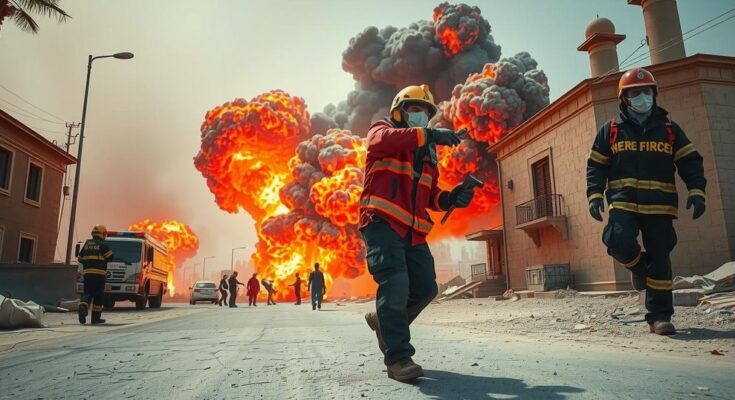The humanitarian situation in Gaza is deteriorating drastically amid protracted conflict, with over 44,900 Palestinian deaths reported since the outbreak of violence. The international community continues to push for a ceasefire, but the blockade and military operations hinder humanitarian efforts. Accusations of war crimes have emerged against both Israeli leaders and Hamas, with legal actions being pursued on various fronts. Amid the suffering, criticism of Hamas’s strategies is increasing among Palestinians, showing the complex dynamics of support and dissent within the besieged territory.
As the conflict in Gaza nears the 16-month mark, Palestinian civilians remain increasingly despondent about the prospect of a ceasefire between Israel and Hamas, despite escalating international efforts for peace. The United Nations General Assembly recently adopted key resolutions calling for an immediate and unconditional ceasefire and the release of all hostages. However, the humanitarian crisis in Gaza endures, worsened by extensive Israeli airstrikes and blockades limiting humanitarian aid, leading to a significant loss of life and exacerbated malnutrition among the population.
Since the eruption of violence following Hamas’s October 7 attack, which resulted in over 1,200 Israeli deaths, the situation in Gaza has deteriorated, with reports indicating that at least 44,900 Palestinians have lost their lives. The Israeli military’s ongoing operations have disrupted essential services, destroyed homes, and forced nearly 90 percent of the population into displacements. The continuing blockade has severely restricted food and medical supplies, resulting in alarming levels of hunger and malnutrition affecting millions, with UNICEF reporting that Gaza is on the brink of famine.
International condemnation of Israeli actions has intensified, with the International Criminal Court (ICC) issuing warrants against various Israeli leaders for alleged war crimes, including starvation as a method of warfare. In contrast, the conflict has led to accusations against Hamas of using civilian infrastructure to shield military activities. As the humanitarian situation grows increasingly dire amid political turmoil, some Palestinians express growing criticism towards Hamas, while still experiencing hardship due to the ongoing warfare.
Despite severe criticisms, several nations, including South Africa, have initiated legal proceedings against Israel, labeling its actions as genocide. The International Court of Justice has also found credible evidence against Israel concerning its violation of the Genocide Convention, underscoring the escalating global scrutiny of the situation. As the humanitarian crisis deepens with the Knesset’s ban on UNRWA’s operations, the discourse surrounding the legality and morality of the actions taken by both sides continues to intensify.
The ongoing Israeli-Palestinian conflict fundamentally revolves around territorial disputes, national identity, and mutual recognition. Following Hamas’s surprise attack on October 7, 2023, Israel conducted extensive air operations against Gaza, leading to an unprecedented humanitarian crisis. This situation has drawn significant international attention, with various stakeholders, including the UN, attempting to mediate and resolve the conflict. The prioritization of military objectives over humanitarian considerations has raised ethical and legal questions surrounding warfare and civilian protection under international law, prompting investigations and allegations of war crimes against both parties.
In summary, the humanitarian crisis in Gaza is critical, characterized by widespread violence, severe food shortages, and displacement of civilians. Despite international calls for a ceasefire and accusations of war crimes against Israeli leaders, the cycle of violence persists. The ongoing scrutiny from global entities underscores the complexities of the conflict, highlighting the urgent need for a resolution that prioritizes the lives of all civilians affected by the turmoil. As tensions continue to rise, the path toward peace and humanitarian aid remains fraught with challenges, necessitating earnest dialogue and reparative measures.
Original Source: www.arabnews.com




